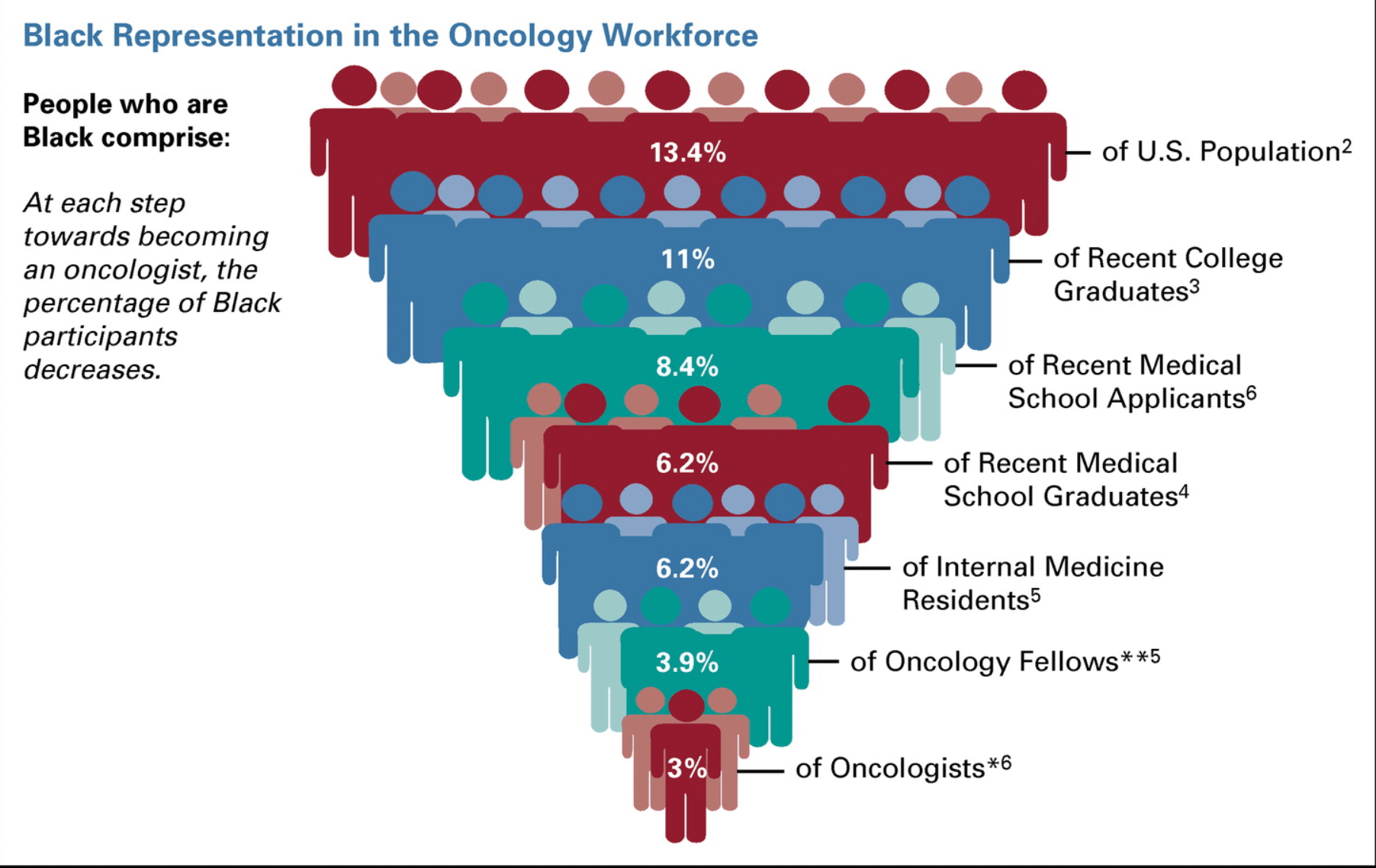Summary
Diverse workforce in oncology: Improvement of inclusion and equity critical to reducing health disparities in cancer care.
Improving equity, diversity, and inclusion within the care delivery and biomedical research workforces is critical to reducing health disparities in cancer care.1 Black people are currently underrepresented at every level of the pipeline that supplies the medical oncology workforce, and their representation decreases at each stage in the pipeline. Specifically, Black people are 13.4% of the US population2 but only 11% of college graduates.3 They make up only 6.2% of recent medical school graduates,4 6.2% of internal medicine residents, and 3.9% of oncology fellows.5 Just 3% of medical oncologists are Black (Fig 1).6 Black representation in medical oncology fellowships has remained relatively flat between 2006 and 2018 and is lower than many other internal medicine subspecialties.7 Black physicians are also underrepresented in other oncology specialties, including radiation oncology, surgical oncology, and gynecologic oncology.8 Additionally, a similar problem exists in the health research workforce, with Black physicians being vastly underrepresented in research careers and on medical school faculty.9,10

Black representation in the medical oncology workforce pipeline.
Benefits of Diverse and Inclusive Workforce
There are many benefits to the healthcare delivery system of a more diverse and inclusive workforce that we are failing to realize. Benefits include improving awareness of health disparities by healthcare organizations and healthcare providers.11 Racial and ethnic concordance between patients and physicians is associated with patients reporting higher satisfaction with their care.12 A diverse workforce contributes to improved cultural competency and patient trust in the healthcare system, which is especially important for patients from communities that have traditionally been underserved or mistreated. It also helps reduce implicit racial bias by physicians, which can negatively affect patient-clinician communication and treatment decisions.13 Other potential advantages of diversity and inclusion in the workforce include expanded patient access to care, policies that better support the needs of all patients, and more research in minority populations.11 Additionally, the lack of Black physicians in research and academic careers may have the downstream effect of perpetuating racial disparities in recipients of research funding.1 It also disadvantages Black students by making it harder for them to identify role models and mentors who represent future versions of themselves as well as fails to ensure Black students feel like they belong in healthcare and research careers.14

